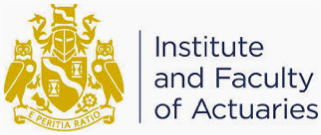
The objective of the PhD in Economic and Social History is to teach and produce original research in the area of economics and social history. The aim of the degree is to educate specialists with a high ability to interpret and respond to economic and social transformations over time and the interaction between the chronological, geographical, and social aspects of these transformations.
Study topics are chosen from the following fields:
Candidates for the school's doctorates can apply for various grants, namely FCT grants (awarded by FCT or ISEG research centers) and, in some cases, ULisboa grants. The criteria, rules and regulations for applying for scholarships are detailed on our website.
The FCT call for doctoral scholarships runs from March 17 until April 16, 2025, at 17:00. For more information contact info.bolsas@fct.pt.
In some cases, PhD students can enroll in projects hosted by research centers or be supported by them. For more information, contact the doctoral coordinator.
The PhD in Economic and Social History was created by the Technical University of Lisbon in 1991, and was later adapted to the standards of the European Higher Education Area in 2009.
A proposal relating to the research topic of the doctoral thesis is presented by the candidate before an examination panel. After being accepted into the program, a supervisor is appointed to guide the student through the in-depth preparation of their thesis project during the 1st Year.
The thesis project is presented and discussed during the 1st Year Seminars and at the end of this year, a consolidated version of the thesis project is evaluated by an examination panel appointed by the Program Coordinator.
The panel displays its recommendation and may suggest changes, or recommend that the student discontinue their studies. If the thesis project is accepted, it is then registered and the name of the supervisor is confirmed. The process of preparing, researching and writing a thesis lasts two academic years, in accordance with the Rules and Regulations of ISEG's Doctoral Programs.
The PhD in Economic and Social History is aimed at those who want an advanced education and who wish to carry out research with the aim of working in the public, private or social economy sector, both in the area of national and international development. Such positions include teaching and research, leadership and management of national and international organizations, consultancy, training, study and research projects, journalism, planning, project development, design and evaluation of public policies and social projects and policies.
| Year 1 | Credits |
|---|---|
| Research Methodology | 10.0 |
| Seminar I - Research topics in economic history | 10.0 |
| Elective I | 10.0 |
| Seminar II - Research topics in business history | 10.0 |
| Elective II | 10.0 |
| Elective III | 10.0 |
| year 2 | Credits |
|---|---|
| Thesis (Research Seminar) | 60 |
| Year 3 | Credits |
|---|---|
| Thesis (Research Seminar) | 60 |
See the description of each Curricular Unit here.
Graduates can be admitted to study for a PhD in Economic and Social History if they have a Master's degree in the areas of Social Sciences (Economics, Sociology, Management and Finance) or Arts and Humanities (History).
Graduates who only have a Bachelor's degree in one of these disciplines may also apply, provided they have a minimum grade of 16, or exceptionally a lower grade, together with a CV that proves scientific training or adequate professional experience. Candidates are selected by the scientific coordination of the Doctoral Program, based on the following criteria:
Provisional tuition fees for 2025/26, pending confirmation by the University of Lisbon's statutory bodies.
| students from | 1st year | 2nd and 3rd Year | 4th Year and beyond |
| Students from the European Union | € 3,000 | € 2,000 | € 1,000 |
| Students outside the European Union | € 4,000 | € 3,000 | € 3,000 |
The PhD program lasts three years.













